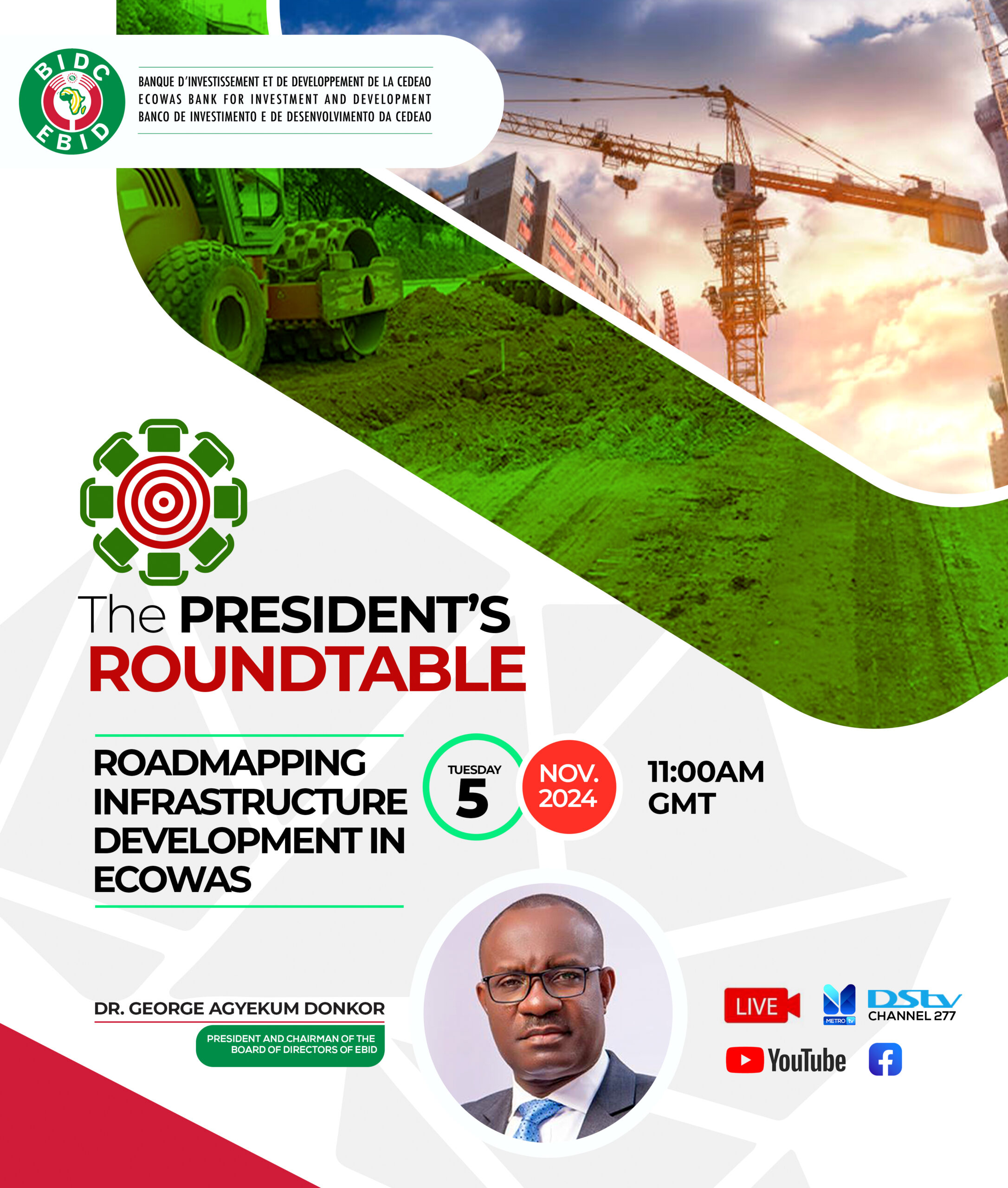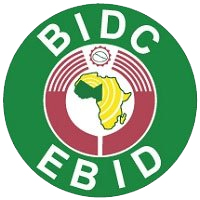
Television Broadcast: The President’s Roundtable – 2024 Edition
“The Roadmap for Infrastructure Development in ECOWAS“
Introduction
According to the World Bank, the infrastructure deficit on the African continent hampers economic growth by 2% per year and reduces productivity by 40%. With a growing population that has surpassed 400 million people and a need for modernization, the ECOWAS sub-region holds immense potential for infrastructure development. There are numerous investment and growth opportunities in sectors such as transportation, telecommunications, and energy. Infrastructure development is crucial for socio-economic progress and plays a vital role in improving the standard of living in the sub-region. The transition from an “ECOWAS of States” to an “ECOWAS of Peoples” heavily depends on strong infrastructure development to foster economic growth, facilitate the free movement of goods and people, and strengthen economic integration. However, the ECOWAS sub-region has suffered from underdeveloped infrastructure, hindering intra-regional trade and limiting economic growth.
The Importance of Infrastructure Development
Infrastructure, which includes electricity, telecommunications, and transport networks, acts as a catalyst for economic growth. For example, studies show that each 1% increase in electricity supply can lead to a 2% to 4% rise in gross domestic product, demonstrating the significant multiplier effect of infrastructure development. Improving infrastructure, such as well-maintained roads, helps reduce post-harvest losses and boost overall economic productivity.
Infrastructure in West Africa is diverse, with a mix of modern and traditional systems. The region has a vast network of roads, railways, ports, and airports connecting it to the rest of the world, although many of these structures are outdated and require modernization. As West Africa experiences steady economic growth, the need for supportive infrastructure becomes increasingly evident for continued socio-economic progress.
Challenges of Infrastructure Development
Despite its essential role in economic growth and improving living standards, the ECOWAS sub-region faces significant infrastructure deficits. There are currently major gaps in sectors such as transportation, electricity, water, and healthcare, both within countries and across the region. For example, many countries face inadequate electricity coverage, with only Ghana and Côte d’Ivoire surpassing 75% coverage. Road networks are often in poor condition, reducing transportation efficiency and hindering intra-regional trade, which remains below 12%.
Railway infrastructure remains underdeveloped, despite its potential to ease the burden on road networks. While telecommunications infrastructure has advanced, challenges remain in improving network quality and internet penetration. There are also significant investment deficits in infrastructure within the sub-region. For example, Nigeria has an infrastructure investment deficit of USD 221 billion, equivalent to 51.2% of the country’s GDP, while Côte d’Ivoire’s infrastructure investment deficit stands at USD 14 billion, equivalent to 22.8% of its GDP.
Despite these challenges, there are many investment and growth opportunities in the infrastructure sector in West Africa. Effective collaboration and innovative financing are essential to bridging the infrastructure gap in the ECOWAS sub-region.
Theme
The theme of the 2024 edition of the high-level roundtable is “The Roadmap for Infrastructure Development in ECOWAS”, which aims to explore collaborative efforts to address the infrastructure challenges in the ECOWAS sub-region and consider concrete solutions to propel the region towards a more prosperous future.
Date and Location
The program will be held on October 8, 2024, at the Metro TV studios in Accra, Ghana, and broadcast live on DSTV Channel 277, as well as on the digital platforms of EBID and Metro TV.
Format
The roundtable will take place in a fully equipped television studio for a televised event that will be broadcast live on a TV channel and the digital platforms of EBID and Metro TV. The discussions will be in a roundtable format based on conversations between the President of EBID and other experts from the development finance and private sectors. Speakers will provide insights (key data, information, and perspectives) on infrastructure challenges and economic growth opportunities. The moderator, an experienced journalist, will pose a series of questions to the panelists on the subject.
Program
- Modernizing infrastructure systems: identifying and exploring innovative and collective efforts to modernize infrastructure systems, covering energy, transportation, and telecommunications.
- Facilitating trade and the movement of people: how to develop the infrastructure sector and build a sustainable foundation in ECOWAS for the successful establishment of the African Continental Free Trade Area (AfCFTA).
- Pooling resources for sustainable infrastructure development: identifying and exploring innovative financing strategies and models to mobilize funds for infrastructure development.
Potential Questions
Modernizing infrastructure systems
- How is your institution/company effectively addressing the infrastructure deficit and the need for modernization of physical systems in ECOWAS countries?
- What are the challenges and opportunities for infrastructure development in ECOWAS?
Facilitating trade and the movement of people
- The infrastructure deficit is a barrier to conducting business, mobilizing capital, people, and goods across the continent due to cumbersome administrative procedures, high costs, and time. How can we help ECOWAS governments close the infrastructure gap so that it can become a catalyst for the AfCFTA?
Pooling resources for sustainable infrastructure development
- The private sector is an increasingly important source of infrastructure funding for ECOWAS, but it currently only contributes 5% to infrastructure financing in the region. How can we encourage private capital investment in key infrastructure projects?
- How can we leverage public-private partnerships (PPPs) to bridge infrastructure gaps and achieve sustainable development projects?



